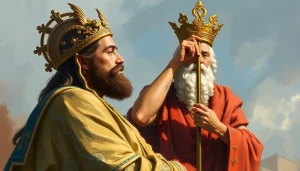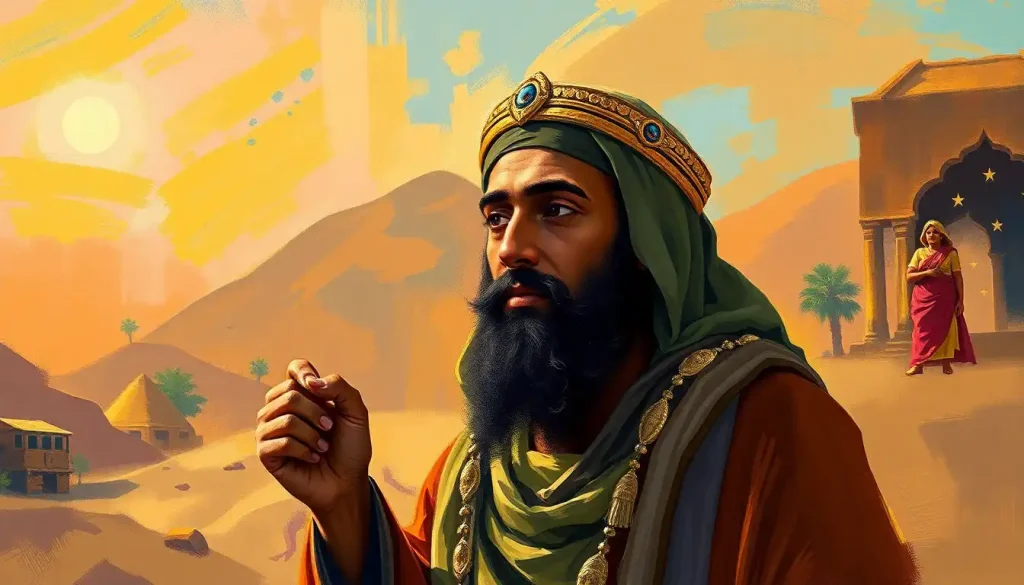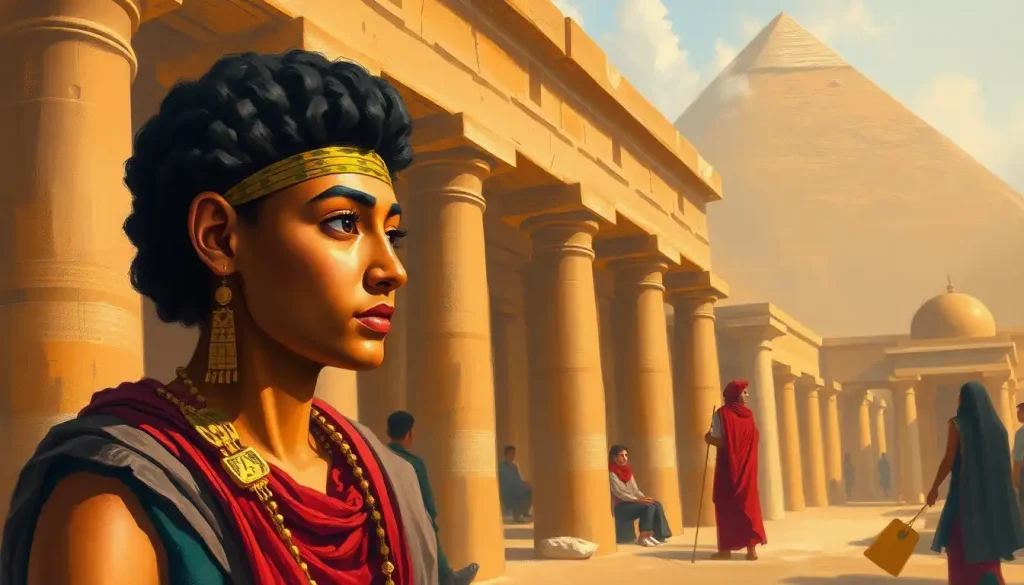Money flowed through the halls of Mount Olympus like nectar and ambrosia, but the divine keeper of this celestial wealth bore an ironic curse that would forever change how mortals viewed fortune and abundance. This enigmatic figure, known as Plutus, held sway over the riches of the ancient Greek world, yet his own story was far from a simple tale of opulence and prosperity.
In the pantheon of Greek deities, Plutus stood apart, a god whose very essence embodied the complexities and contradictions of wealth itself. His presence in the mythology of ancient Greece reflects the profound importance that wealth held in their society, a concept that extended far beyond mere material possessions. The Greeks, with their keen understanding of human nature, recognized that wealth was a double-edged sword, capable of bringing both joy and sorrow, unity and division.
To truly appreciate the significance of Plutus, we must first understand the role that gods played in Greek mythology. These divine beings were not distant, unreachable entities, but rather active participants in the affairs of mortals. They embodied the forces of nature, human emotions, and abstract concepts, giving form to the intangible aspects of life that shaped the Greek worldview. In this context, Plutus emerged as the personification of wealth, a god whose influence touched every aspect of Greek society, from the humblest farmer to the mightiest king.
The Birth of a Golden God: Plutus’ Origins and Mythology
The story of Plutus begins, as many Greek myths do, with a divine liaison. Born to Demeter, the goddess of agriculture and fertility, and Iasion, a mortal man, Plutus’ very conception was a testament to the intertwining of earthly abundance and divine blessing. This union, which took place in a thrice-plowed field in Crete, symbolized the Greeks’ understanding of wealth as something that sprung from the earth itself, nurtured by both human effort and divine favor.
Hesiod, the ancient Greek poet whose works provide some of our earliest accounts of Greek mythology, mentions Plutus in his Theogony. Here, the god is described as one who “goes everywhere over land and sea, and him who finds him and into whose hands he comes he makes rich, bestowing great wealth upon him.” This portrayal paints Plutus as a benevolent force, one who wanders the world bestowing riches upon those fortunate enough to encounter him.
Yet, despite his illustrious parentage and generous nature, Plutus occupied a somewhat ambiguous position among the Olympian gods. He was not counted among the twelve major deities who resided on Mount Olympus, but rather existed in a realm between the divine and mortal worlds. This liminal status perhaps reflected the Greeks’ complex relationship with wealth itself – something desired yet viewed with a degree of suspicion.
In ancient art, Plutus was often depicted as a child, holding a cornucopia overflowing with fruits and grains. This representation symbolized not only abundance but also the idea that wealth, like a child, required nurturing and guidance to grow properly. Sometimes, he was shown in the company of Tyche, the goddess of fortune, underscoring the connection between wealth and luck in the Greek mindset.
The Blind God’s Blessings: Plutus’ Attributes and Powers
Perhaps the most intriguing aspect of Plutus’ mythology is his blindness. According to legend, Zeus himself blinded the god of wealth, an act that at first glance seems cruel and arbitrary. However, this apparent curse held a deeper meaning, one that reveals much about the Greek conception of wealth and its distribution.
The blindness of Plutus served as a powerful metaphor for the impartial nature of wealth. In their wisdom, the Greeks recognized that fortune did not always favor the deserving, nor did it consistently shun the unworthy. By making their god of wealth blind, they acknowledged the often random and unpredictable nature of financial success. This blindness also symbolized the idea that true wealth was not merely about accumulating material possessions, but about the richness of character and spirit that transcended physical sight.
Despite his visual impairment, Plutus wielded considerable power over the realm of abundance. His influence extended beyond mere coins and precious metals to encompass the fertility of the earth itself. In this capacity, he shared some overlap with agricultural deities like his mother Demeter, highlighting the Greek understanding of wealth as deeply rooted in the bounty of the land.
Interestingly, Plutus was not the only deity in the Greek pantheon associated with wealth. Hades, the god of the underworld, was also connected to riches, particularly those found beneath the earth. This association led to some confusion and conflation between the two figures, a topic explored in depth in the article “Hades: God of Wealth or Underworld? Unraveling the Mythological Mystery“. While both gods dealt with wealth, their domains and characteristics were distinct, reflecting different aspects of the Greek understanding of abundance and prosperity.
Sacred Spaces and Divine Rituals: The Worship of Plutus
Given the importance of wealth in Greek society, it’s no surprise that Plutus had his share of dedicated temples and sanctuaries. These sacred spaces served as focal points for those seeking the god’s favor, places where mortals could offer prayers and sacrifices in the hope of attracting prosperity.
One of the most notable sites associated with Plutus was the sanctuary of Eleusis, where he was worshipped alongside Demeter and Persephone as part of the Eleusinian Mysteries. These secret religious rites, which promised initiates a blessed afterlife, incorporated elements of agricultural and economic prosperity, reflecting the interconnected nature of spiritual and material wealth in Greek thought.
Rituals and offerings to Plutus often involved agricultural products, reflecting his connection to the earth’s bounty. Worshippers might present the first fruits of their harvest or libations of wine and oil. Some accounts suggest that coins were sometimes offered, though this practice was less common in earlier periods when wealth was more closely tied to land and livestock than to currency.
Festivals celebrating Plutus were often integrated into broader agricultural celebrations. The Thesmophoria, a women’s festival honoring Demeter, likely included elements of worship directed towards Plutus as well. These events served not only as religious observances but also as communal gatherings where ideas about wealth, prosperity, and the proper use of resources were shared and reinforced.
From Stage to Page: Plutus in Literature and Drama
While Plutus may not have been as prominent in Greek mythology as some of the Olympian gods, he made a significant impact in the realm of literature and drama. Perhaps the most famous work featuring the god of wealth is Aristophanes’ play “Plutus,” first performed in 388 BCE.
In this comedic masterpiece, Aristophanes uses the character of Plutus to explore themes of wealth distribution, social justice, and the nature of prosperity. The play tells the story of a poor Athenian who encounters the blind god and decides to restore his sight, believing this will lead to a more just distribution of wealth. However, the consequences of this act prove to be far more complex and far-reaching than anticipated, leading to a series of humorous and thought-provoking situations that challenge the audience’s assumptions about wealth and its role in society.
Beyond Aristophanes’ play, Plutus appeared in various other works of Greek literature, often serving as a symbol or allegory for wealth and its effects on human behavior. Poets and philosophers alike used the figure of Plutus to explore questions of ethics, morality, and the proper use of resources.
The influence of Plutus extended beyond Greek borders, finding its way into Roman mythology as well. The Roman god Dis Pater, often associated with underground wealth, shared many characteristics with Plutus. This connection is explored further in the article “Roman God of Wealth: Plutus and the Ancient Concept of Prosperity“, which delves into the fascinating parallels and differences between Greek and Roman conceptions of divine wealth.
Echoes Through Time: Plutus’ Legacy and Modern Interpretations
The figure of Plutus and the ideas he represented had a profound impact on economic thought in ancient Greece. Philosophers and political thinkers grappled with questions of wealth distribution, the moral implications of prosperity, and the role of divine favor in financial success. These debates, sparked in part by the complex mythology surrounding Plutus, laid the groundwork for many of the economic theories that would emerge in later centuries.
During the Renaissance and Baroque periods, artists rediscovered the rich symbolism of classical mythology, and Plutus once again found himself in the spotlight. Painters and sculptors depicted the god of wealth in various allegorical scenes, often using his image to comment on the economic and social conditions of their own times. These artistic interpretations helped to keep the figure of Plutus alive in the cultural imagination, even as belief in the old gods faded.
In modern times, the name Plutus has been adopted by various financial institutions and economic publications, serving as a shorthand for wealth and prosperity. While few today actively worship the blind god of wealth, his legacy lives on in our continued fascination with the nature of abundance and the complex relationship between material success and moral virtue.
Interestingly, the concept of a divine figure associated with wealth is not unique to Greek mythology. Many cultures around the world have their own deities of prosperity and abundance. For instance, the article “Egyptian God of Wealth and Incense: Exploring the Divine Realm of Abundance” explores similar themes in ancient Egyptian religion, while “Japanese God of Wealth: Exploring Ebisu, Daikoku, and Other Prosperity Deities” delves into Eastern conceptions of divine wealth. These cross-cultural comparisons reveal both the universality of human concerns about prosperity and the unique ways different societies have conceptualized and personified wealth.
The Golden Thread: Plutus’ Enduring Significance
As we reflect on the figure of Plutus and his place in Greek mythology, we’re struck by the enduring relevance of the themes he embodies. The blind god of wealth serves as a potent reminder of the complex nature of prosperity – its power to transform lives, its potential for both good and ill, and the often unpredictable way it moves through the world.
The symbolism of wealth in mythology continues to resonate with us today, perhaps more than ever in our increasingly globalized and financially complex world. The stories of Plutus and his divine counterparts from other cultures offer us a lens through which to examine our own relationships with wealth, abundance, and the pursuit of prosperity.
Moreover, the role of divine figures like Plutus in shaping cultural attitudes towards wealth cannot be overstated. These mythological constructs provided ancient societies with a framework for understanding and discussing complex economic and social issues. They served as cautionary tales, aspirational figures, and repositories of cultural wisdom about the nature of wealth and its proper use.
In our modern era, where discussions of wealth inequality, ethical investing, and the social responsibilities of the wealthy dominate public discourse, the lessons embedded in the myth of Plutus remain surprisingly relevant. The blind god’s impartial distribution of wealth challenges us to consider the role of chance and circumstance in financial success. His association with agriculture reminds us of the fundamental connection between prosperity and the natural world. And his complex relationships with other deities underscore the interconnected nature of wealth with other aspects of human life and society.
As we navigate our own relationships with wealth and prosperity, we would do well to remember the wisdom encapsulated in the myth of Plutus. Like the ancient Greeks, we must grapple with the dual nature of wealth – its potential to nurture and destroy, to unite and divide. We must consider not just the accumulation of riches, but their just distribution and responsible use.
In the end, the story of Plutus, the blind god of wealth, serves as a timeless reminder that true prosperity extends far beyond material abundance. It encompasses the richness of character, the wealth of wisdom, and the prosperity of spirit that no amount of gold can buy. As we pursue our own paths to financial success, may we keep sight of these deeper truths, guided by the enduring lessons of mythology and the timeless quest for true abundance.
References:
1. Hesiod. Theogony. Translated by Hugh G. Evelyn-White. Harvard University Press, 1914.
2. Aristophanes. Plutus. Translated by Eugene O’Neill, Jr. Random House, 1938.
3. Burkert, Walter. Greek Religion. Harvard University Press, 1985.
4. Graf, Fritz. Greek Mythology: An Introduction. Johns Hopkins University Press, 1993.
5. Hard, Robin. The Routledge Handbook of Greek Mythology. Routledge, 2004.
6. Larson, Jennifer. Ancient Greek Cults: A Guide. Routledge, 2007.
7. Parker, Robert. On Greek Religion. Cornell University Press, 2011.
8. Seaford, Richard. Money and the Early Greek Mind: Homer, Philosophy, Tragedy. Cambridge University Press, 2004.
9. Smith, William. Dictionary of Greek and Roman Biography and Mythology. Little, Brown and Company, 1867.
10. Versnel, H.S. Coping With the Gods: Wayward Readings in Greek Theology. Brill, 2011.












Would you like to add any comments? (optional)